The future is here, and this sentence has become the mantra of many people now.
With the development of technology, the Internet of Things and even the Internet of Things society seems to be getting closer and closer to us. Data predicts that the scale of the global Internet of Things industry will reach US$1 trillion by 2020, with an average annual compound growth rate of 23.4% in the next five years.
According to data from the China Internet of Things Research and Development Center, the scale of my country's Internet of Things industry will reach 2 trillion by 2020, with a compound growth rate of 22% in the next five years.
The development of the Internet of Things is inseparable from artificial intelligence. At present, the most successful example of artificial intelligence + Internet of things is Amazon's smart speaker Echo. Among many Internet of Things devices, the voice interaction form used by Echo quickly opened up the market. Through the smart voice assistant Alexa inside the speaker, users can realize news broadcast, control home appliances, call a car, order takeaway and other services.
Whether in China or overseas, smart speakers have become a new wave. It can be said that smart speakers are the first door to open the IoT market.
But behind this door, there are many innovation opportunities waiting to "subvert the smart speaker."
Smart alarm clockOn August 1, in Langyuan, Beijing, Ala's released its first product-Xiaonao Smart Alarm Clock.
Compared with the current smart speakers, it is strange for many people to make a smart alarm clock: Is there still a chance to be a smart device?
Huang Haiyan, the executive general manager of Ala, explained the logic behind making smart alarm clocks.
The first is the question of competition. In history, IT electronic products have gone through a long period of time before they have entered a stage of fierce competition. For example, when mobile phones have evolved from the era of the big brother to the current form, competition has truly entered the Red Sea.
However, a large number of companies and a large amount of funds have entered the equipment based on smart speakers from the beginning, and the situation is worse than ever before.
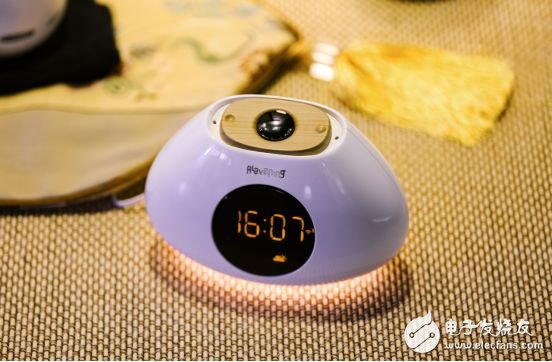
In this case, as a startup company, the chance of making a smart speaker at this point in time is very slim.
The second logic lies in consumer cognition. The alarm clock is an "old forgotten object" in people's impression, and this is also a vacuum zone that seizes the user's cognition.
"Smart IOT products are nothing more than that there are so many categories, which brand seizes the head of which category, in fact, the development of smart IT is like this, because each category represents a kind of scene."
Allah’s is a company born with a golden key. At the beginning of its establishment, it received investment from three companies, namely, Sannuosheng Zhilian, Himalaya and Sogou. In the early stage of the company's development, the three investors were able to provide support in hardware, content, and technology.
Smart Device Entry TheoryIn fact, not only is Allah, but many smart devices are competing for the "entrance" position of smart home.
In the early days of smart homes, routers were once regarded as the most promising product for entry. Therefore, a few years ago, giants and startups entered the game one after another, including companies such as Xiaomi, 360, Baidu, and Jilulu, all participating in this trend.
However, the claim that the router is the center of the Internet of Things did not hold true.
Extreme routing publicly reflects, the idea of ​​using routers as an entry point does not work. Co-founder Ding Yi once said that the mistake of Extreme Routing is that it does not design products from the perspective of users. It does not consider how to serve users well and build a smart home environment, but how to compete for the "entry", out of the nature of hardware products.
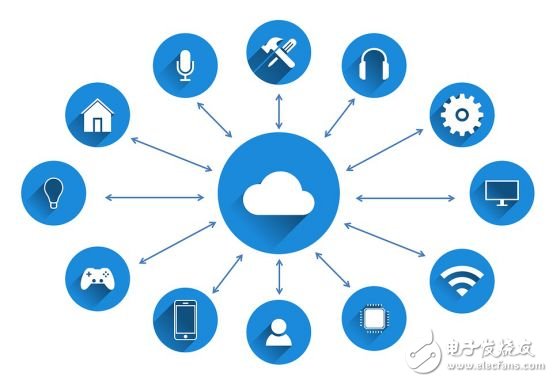
In the first few years of Xiaomi's establishment, Lei Jun has repeatedly mentioned in public that Xiaomi's three core businesses are mobile phones, TVs and routers. But at the beginning of 2016, the router disappeared from Xiaomi's three main business sectors, which proved the failure of the router entrance theory from another angle.
Then, this heavy burden fell on the shoulders of the smart speakers. The most powerful product is the smart speaker Echo launched by Amazon in 2014. This smart speaker product has steadily increased in sales after its release and has become Amazon's flagship product.
People can use it to listen to music at home, set alarm clocks, link with other smart home appliances, and even take taxis and shopping skills. At home, the role of smart speakers replaces mobile phones, freeing users' hands.
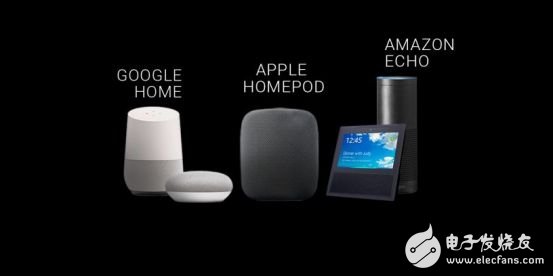
Obviously, let the speaker become a center and control various devices behind it. This is an entry-level product. Whoever wins this market can get the first ticket in the era of artificial intelligence, and China has not yet shipped it. For large-scale enterprises, great opportunities have emerged.
As a result, the "Hundred Box War" officially started. According to incomplete statistics, nearly 100 domestic smart speaker companies have entered the market.
The entry of giants and increasingly fierce price wars have also allowed smart speaker manufacturers to compete quickly into the Red Sea. On the other hand, the market is not mature enough, and the lack of user awareness has also become a factor hindering its development.
Beyond smart speakersIn Huang Haiyan's view, smart devices are actually an extension of smart phones. The reason why many smart devices will be released is because the future trend is to hardwareize mobile apps.
Huang Haiyan told Pintu Commercial Review that the mobile phone is a full-scenario device, so the biggest problem with the mobile phone is that there is no way to accurately portray user behavior. If a certain APP in the mobile phone is hardwareized, then this hardware will really fall into a scene, which is the development logic of the future IoT.
Therefore, smart speakers blindly emphasize artificial intelligence, which may not be a good thing for manufacturers. Huang Haiyan gave an example to Pintu Business Review. In the thousand-yuan market of smart speakers, the Xiaoya smart speakers produced by Himalaya have the best sales, and the user's online time is several times that of competitors. The logic of this is that what users buy is actually Himalayan content, and its product positioning and user portraits are very clear.
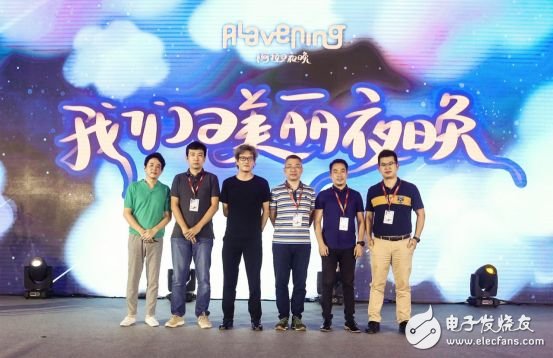
(The first from left is Huang Haiyan, the executive general manager of Ala)
From Allah’s point of view, the differentiated competition with smart speakers lies in the means of operation. The advantage of an alarm clock is that it is born with the power to actively remind users. When subscribing to a piece of content, or reminding based on a time dimension, Allah will make content around this scene.
After the smart speaker brings a novel feeling to people, the user's intention for this product is becoming more and more vague, and the smart speaker can only return to the essence of listening to songs in the end.
There is still no standard answer as to where the entrance to the smart home is. Huang Haiyan and most people currently believe that smart homes must have multiple entrances. In addition to smart speakers, the opportunity for any type of smart hardware in any category lies in the use of some subdivided scenarios and some operational advantages to create opportunities.
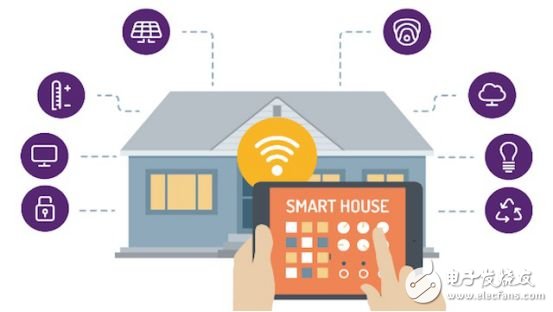
If these devices are not regarded as hardware products, their value lies in voice interaction. However, awakening other products through a voice-interactive central product is slightly less convincing logically. Therefore, the multi-center strategy is very suitable in the family scenario.
Large companies that are struggling to build platforms are also struggling to move closer in this direction. It is reported that Xiaomi has been testing the water to determine which product is the closest to the user based on the sound level, and take the lead in responding to avoid the situation where many devices respond together after the user sends a command.
Mingshi Capital founder Huang Mingming mentioned that sweeping robots are also likely to become an entrance to the home Internet of Things. The SLAM algorithm of the sweeping robot will scan all the environment where the user lives and store the relevant data in the database; there are many interaction scenes with people, so it is likely to become another very important interaction or the entrance of traffic.
Chen Xiaoliang, the founder of Shengzhi Technology, said that if smart speakers cannot carry the task of voice interaction, there may be the next product, such as a smart set-top box. If the experience is reached, there will be a big breakthrough in the order of magnitude.
Of course, some people are not optimistic about the entrance. Gu Jiawei, the founder of Wuling Technology, told Pintu Business Review that starting a startup is just looking for death. You can let the giants run forward first, and after voice interaction becomes a habit, startups can become beneficiaries.
If we regard the final form of artificial intelligence hardware as a perfect robot, it will take a long time to reach it.
During this period, new technologies such as the Internet of Things and artificial intelligence will continue to innovate, bringing huge imagination to people's lives. For smart home companies, the ever-changing era is also an unprecedented opportunity.
Our company specializes in the production and sales of all kinds of terminals, copper terminals, nose wire ears, cold pressed terminals, copper joints, but also according to customer requirements for customization and production, our raw materials are produced and sold by ourselves, we have their own raw materials processing plant, high purity T2 copper, quality and quantity, come to me to order it!
Copper Connecting Terminals,Cable Lugs Insulated Cord End Terminals,Pvc Insulated Cord End Terminal,Cable Connector Insulated Cord End Terminal
Taixing Longyi Terminals Co.,Ltd. , https://www.lycopperterminals.com